Urban Resilience & Sustainability
About the Conference
Panel I: Challenges and Opportunities for Urban Sustainability: Results from the 2016 National Academy Report Moderator Karen Seto
This panel will discuss the key insights from the recently published National Academy report, Pathways to Urban Sustainability: Challenges and Opportunities. What are the different sustainability paradigms that incorporate the social, economic, and environmental systems and which could be blueprints for other regions with similar barriers to and opportunities for sustainable development and redevelopment? Examples from Chattanooga and Los Angeles will be used to discuss how sustainability practices have contributed to the development, growth and regeneration of major metropolitan regions in the United States. The panel will also discuss how national, regional, and local actors are approaching sustainability, and specifically, how diverse stakeholders (e.g. industry, city/county governments, universities, public groups) are necessary to integrate science, technology, and research into catalyzing and supporting local sustainability initiatives.
Panel II: Building Urban Resilience: How are Rockefeller Foundation’s 100 Resilient Cities addressing stresses and preparing for shocks? Moderator Brad Gentry
In 2013, the Rockefeller Foundation (RF) pioneered the 100 Resilient Cities initiative (100RC) to help cities around the world become more resilient to the physical, social and economic challenges they are facing. It does so by supporting the adoption of a view of resilience that includes not just the shocks—earthquakes, fires, floods, etc.—but also the stresses—unemployment, violence, food/water shortages, etc.—that weaken the fabric of a city on a systemic basis. By addressing both the shocks and the stresses, a city becomes more able to respond to adverse events, as well as to deliver basic functions to all populations in good times and bad. Panelists Scott Rosenstein (Head of Platform Research for 100RC), Katerina Oskarsson (Deputy Resilience Officer for the city of Norfolk, VA) and Murali Chandrashekaran (Senior Associate Dean, Strategic Partnerships and Global Initiatives, Sauder School of Business, University of British Columbia) will discuss the approaches being taken to enhance urban resilience, as well as to capture and share the lessons being learned.
Watch Panel III, IV, and Habitat III Student Reflections
Panel III: Bridging Science and Management to Achieve Sustainability Moderator Virginia Chapman
Panelists will focus on innovative engineering solutions and water resource research that is driven by urban and campus planning. New Haven lies along the Atlantic coast and experiences both cyclonic disturbances and coastal storms and consequently faces both acute coastal and inland flooding events. In 2015, the city of New Haven introduced Vision 2025, a plan for a sustainable, healthy, and vibrant city, and in October 2016, the Yale Sustainability Plan 2025 was launched. These planning efforts have created momentum to launch joint initiatives toward a more sustainable future. Panelists Julie Paquette, Gaboury Benoit and Giovanni Zinn with Moderator Ginger Chapman will describe current efforts underway to manage resources more holistically and explore the major barriers and merits of crossing the town-gown divide.
Panel IV: Adapting the Connecticut Coast
In the wake of Hurricane Sandy in 2012 and more recent projections of sea level rise, the State of Connecticut and its coastal communities have been compelled to reassess patterns of development, placement of infrastructure, storm and flood protection, storm water management, and indeed all the many factors associated with the broad concept of resilience. In particular, the disciplines of planning, architecture and landscape design have had the challenge – but also the opportunity – to reconsider established paradigms and practices. This panel will present perspectives from professionals in all of these fields, who are also currently collaborating on important initiatives and studies throughout the state, but focused on Connecticut’s largest city, Bridgeport. We will consider the role of research, policy, politics, funding, design, technology, and community participation in approaching these projects.
Habitat III: Student Reflections
In mid-October several students from Yale F&ES participated in the United Nations (UN) conference, Habitat III, a global summit aimed at outlining best practices for urban sustainability, resilience, and development. This trip was the culmination of almost a year of preparation during which students closely followed the lead up to the conference and its goal of drafting a “New Urban Agenda.” Students will share their on-the-ground experience in Ecuador, as well as reflections on the New Urban Agenda and the Habitat III process.
Speaker Information
Dr. William Solecki is on the faculty at Hunter College – City of New York in the Department of Geography and CUNY Institute for Sustainable Cities. Dr. Solecki’s research focuses on urban environmental change, resilience, and transitions. He has served as leader or co-leader of several climate impacts studies in the greater New York and New Jersey region, including the New York City on Panel on Climate Change (NPCC) and the New York State ClimAID report. He currently serves as the co-PI on the Climate Change Risk in the Urban Northeast (CCRUN) NOAA-funded RISA project which is designed to promote climate risk information for decision-makers and stakeholders in the urban Northeast US. Solecki is the participant on a recently NSF funded, Urban Resilience and Extreme Events (UrEX) Sustainability Research Network. He recently was a lead author of the IPCC, Working Group II, Urban Areas chapter (chapter 8) and a coordinating lead author of the US National Climate Assessment, Urbanization, Infrastructure, and Vulnerability chapter (chapter 11). He is a co-founder of the Urban Climate Change Research Network (UCCRN) and co-editor of the recent Climate Change and Cities Assessment (ARC3) Report.
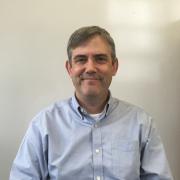
Speaker Information
An urban and land change scientist, Karen Seto is one of the world’s leading experts on contemporary urbanization and global change. She uses satellite remote sensing, field interviews, and modeling methods to understand how urbanization will affect the planet, including land change, food systems, biodiversity, and climate change. She has pioneered methods to reconstruct urban land use with satellite imagery and has developed novel methods to forecast urban expansion. She has conducted urbanization research in China for twenty years and in India for more than ten. Dr. Seto has served on numerous national and international scientific bodies. She was a coordinating lead author for the 2022 IPCC 6th Assessment Report and the 2014 IPCC 5th Assessment Report. For both reports she co-led the chapter on urban mitigation of climate change. She currently co-chairs the U.S. National Academies Climate Security Roundtable, established by the direction of Congress to help better understand and anticipate the ways climate change affects U.S. national security interests. She also co-chairs the U.S. National Academies Subcommittee on U.S.- China Scientific Engagement. From 2000 to 2008, she was faculty at Stanford, where she held joint appointments in the Woods Institute for the Environment and the School of Earth Sciences. She has received many awards for her scientific contributions, including the Outstanding Contributions to Remote Sensing Research Award from the American Association of Geographers.
Dr. Seto is an elected member of the U.S. National Academy of Sciences, the American Academy of Arts and Sciences, the Connecticut Academy of Science and Engineering, and a Fellow with the American Association for the Advancement of Science. She received a PhD in Geography from Boston University.
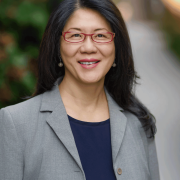
Speaker Information
Jerry Miller was appointed Director of the Science and Technology for Sustainability (STS) Program at the National Academies of Sciences, Engineering, and Medicine in February 2015. A senior executive with expertise in science and resource management policy, Dr. Miller is the Academies’ senior scientist driving policy and program direction on sustainability-related issues. Previously, Dr. Miller served as President of Science for Decisions, a consulting practice which he founded to ensure that solid science is available to inform policy and management decisions that impact natural resources and the livelihoods that depend upon them. From 2009 until 2013, Dr. Miller served as Assistant Director for Ocean Sciences at the White House Office of Science and Technology Policy (OSTP). During his time at OSTP, Dr. Miller was instrumental in the creation of the nation’s first National Ocean Policy and the development of its foundational science priorities. He was founding co-Director of the National Ocean Council Office and later served as its Deputy Director for Science and Technology. Before taking on his role at the White House, Dr. Miller was Technical Director and Director of Research at the Consortium for Oceanographic Research and Education (now the Consortium for Ocean Leadership), where he had management and oversight responsibilities for several national and international programs. Before coming to Washington he lived in London and served as Associate Director for Ocean, Atmosphere, and Space Sciences at the Office of Naval Research’s global office. Dr. Miller has published widely in the peer-reviewed literature and has made significant contributions to several major federal policy documents. His work has been recognized with awards both in the U.S. and abroad, including with a Distinguished Career Achievement Award from the University of Rhode Island. Dr. Miller received his B.S. in Marine Science from University of South Carolina, his M.S. in Oceanography from University of Rhode Island, and his Ph.D. in Meteorology and Physical Oceanography from University of Miami.
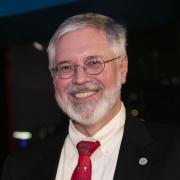
Speaker Information
Charles Branas is a Professor of Epidemiology at the University of Pennsylvania. Dr. Branas works to improve health and healthcare and is recognized for his efforts to reduce violence and enhance emergency care. Much of his work incorporates human geography and place-based change. His studies have taken him to cities and small towns across the US and other countries. Dr. Branas has served on boards and offered scientific expertise for numerous groups including the National Institutes of Health, the Centers for Disease Control, the Canadian National Research Council, the South African Medical Research Council, the Institute of Medicine, the National Research Council, and the American Public Health Association. His work has been cited by the US Supreme Court and Congress. He is a past President of the Society for Advancement of Violence and Injury Research, an elected member of the American Epidemiological Society, and affiliated faculty at the University of San Carlos in Guatemala and the University of Otago in New Zealand. Dr. Branas received his B.A. in Mathematics from Franklin and Marshall College (1990), his M.S. from Drexel University (1993), his Ph.D. from the Johns Hopkins Bloomberg School of Public Health (1997), and completed a post-doctoral fellowship at the University of California, Berkeley School of Public Health (2000).
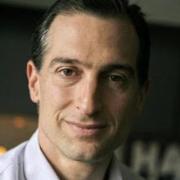
Speaker Information
Ernest Tollerson rejoined the Nathan Cummings Foundation (NCF) as Interim President and CEO in August 2014. From 2003-2013 he served as a NCF trustee, including one three0year term as chair of the board of trustees. Prior to joining NCF as Interim President and CEO, Mr. Tollerson worked for the Metropolitan Transportation Authority (MTA) as Director of Environmental Sustainability & Compliance. During seven and a half years at the MTA, he organized and oversaw the work of the Blue Ribbon Commission on Sustainability & the MTA (its final report is available at http://www. Mta.info/sustainability). In 2010, he co-chaired the Transporation & Land Use Technical Working Group of the New York State Climate Action Plan Interim Report (available at www.myclimatechange.us/interimreport.cfm). Currently, he is a trustee of the Hudson River Foundation and the New York Historical Society. He is also a former member of the management board of the Environmental Grantmakers Assocation, the affinity group for U.S.-based foundations that fund environmental NGOs and projects, and a former member of the board of Demos, a nonpartisan hub for research, ideas and action to promote the common good. A graduate of Princeton and Columbia’s Graduate School of Journalism, Mr. Tollerson spent nearly 25 years as a journalist. He worked as a reporter and editor for a number of newspapers including the Philadelphia Inquirer, where he was a political reporter, New York Newsday, where he was the editorial page editor, and the New York Times, where he was first a national correspondent and later a member of the Times’ editorial board.
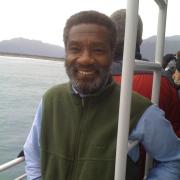
Speaker Information
Amanda Pitre-Hayes was the Director of Sustainability for the city of Vancouver and led a team of 16 to achieve the Council directive to become the world’s greenest city by 2020. She has 20 years of experience in leadership roles at Vancity, the Pembina Institute, Accenture, and The Body Shop Canada. At Vancity, Ms. Pitre-Hayes managed the organization’s climate change strategy, led its successful effort to be the first carbon neutral financial institution in North America. As Director of Climate Change Consulting with the Pemba Institute, Ms. Pitre-Hayes worked with organizations, such as TD Bank, to become greener by measuring and managing carbon dioxide emissions. As a Manager at Accenture, she managed major projects for North American government, energy, telecom, and financial services organizations. At the Body Shop Canada, Ms. Pitre-Hayes served as assistant to the President, supporting the organization with a wide variety of sustainability initiatives. Ms. Pitre-Hayes is an alumnus of Harvard University’s Global Change Agent program and holds an M.B.A. from the University of California, Berkeley.

Speaker Information
Brad Gentry is the F.K. Weyerhaeuser Professor in the Practice at the Yale School of the Environment and the Yale School of Management, Senior Associate Dean for Professional Practice at the Yale School of the Environment, and a Director of the Yale Center for Business and the Environment. Trained as a biologist and a lawyer, his work focuses on strengthening the links between private investment and improved environmental performance, with a particular focus on increasing investment in natural areas. He has worked on land, water, energy, industrial and other projects in over 40 countries for private (GE, Suez Environnement, Working Lands Investment Partners), public (UNDP, World Bank, Secretariat for the Climate Change Convention, UNEP) and not-for-profit (Land Trust Alliance, The Trust for Public Land, the Northern Forest Center, SustainableCT) organizations. He holds a BA from Swarthmore College and a JD from Harvard Law School.
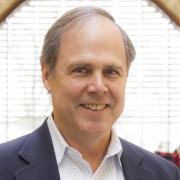
Abstract
The 100 Resilient Cities initiative, pioneered by the Rockefeller Foundation, represents an innovative response to two realities: (a) cities are complex and insufficiently organized, and (b) market solutions do not scale efficiently. By creating networks of cities, chief resilience officers, and platform partners, the approach bears immense potential to trigger a global resilience conversation and harness the benefits of being part of a network. In turn, 100RC’s city resilience framework (CRF) provides a canvas for collaboration and a standard vernacular across cities to engage in the resilience conversation. This presentation focuses on the view from a platform partner – why the Global Network for Advanced Management sought to join this initiative, what we have done in collaboration with 100RC so far, and some key learnings. The presentation will also reflect on the profound importance of one of the four dimensions of the CRF – strategy & leadership. Casting the resilience-building journey as involving a change management process, we will engage with topics such as resilience valuation & metrics, development outcomes & asset management, and the role of universities in capacity building and spawning use-inspired research in the area of resilience.
Speaker Information
Murali Chandashekaran is the Vice Provost (International), at the University of British Columbia (UBC), Canada, and the Fred H. Siller Professor of Behavioural Science at UBC’s Sauder School of Business. As Vice-Provost (International), Murali’s service focuses on advancing UBC’s international strategic priorities, shepherding the university’s diverse and complex international activities on two campuses that serve as home to over 60,000 students and over 15,000 faculty and staff. He is also Visiting Professor of Business Administration at the Yale School of Management, and Senior Research Fellow in the Global Network for Advanced Management (GNAM; http://advancedmanagement.net, a network of 29 leading international business schools from diverse regions, countries, cultures, and economies in different phases of development, seeking to leverage interconnectedness of global institutions to develop global leaders for coming decades). Murali serves on the UBC Taskforce for the creation of a School of Public Policy and Global Affairs, and is an active member of the steering group of the Highly Integrative Basic and Responsive Research (HIBAR) Initiative, which seeks to, in collaboration with other universities, implement programs and strategies to catalyze visionary use-inspired collaborative research. Believing deeply in the idea that universities can play a central role in building a more just and prosperous world, he seeks to develop and nurture global collaborative networks with academic institutions, corporates, communities, cities and countries, break down silos, and bring diverse stakeholders together to help increase the societal impact of universities. Murali is widely published in leading academic business journals in the areas of metrics (specifying models to capture various market phenomena) and valuation (estimating the impact of assets and investments on market-based outcomes). His current research is in the area of resilience valuation and asset management – specifying measures, monitoring systems, and estimation models to derive metrics that capture the short-term and long-term impact of assets and investments on resilience of neighborhoods, cities and regions. He lives in Vancouver with his wife and three daughters, and has taken up competitive curling as a new hobby.
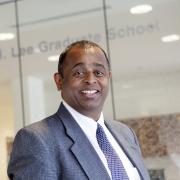
Speaker Information
Before joining 100 Resilient Cities, Scott was the Director of the Global Health Program at the Eurasia Group, a political risk consultancy in New York. In that position he worked with government and private sector clients interested in global health policy, emergency resilience, pandemic preparedness, and health infrastructure analysis. Prior to this, Scott was a research associate in the global health program at the Council on Foreign Relations (CFR), where he focused on the intersection of emerging infectious diseases and national security. Scott is also co-founder of Restore Rockaway, a non-profit organization that provides grants to small businesses on the Rockaway Peninsula that were damaged during Hurricane Sandy. His international experience includes projects in Bosnia and Herzegovina, Nigeria, South Africa, Botswana, and El Salvador. He has published pieces on the 2009-2010 H1N1 flu pandemic, links between HIV and national security, the politics of the polio epidemic in Nigeria, and the global governance of infectious diseases. Scott is a former term member at the Council on Foreign Relations and was on the Arthur Ross Book Award Nominating Committee. Scott earned his Bachelor of Arts degree from Amherst College and holds Master of Public Health and Master of International Relations degrees, both from Yale University.
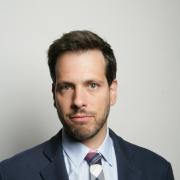
Abstract
As one of the first 100 Resilient Cities (100RC), Norfolk has adopted the Rockefeller Foundation’s definition of resilience as the capacity of individuals, communities, institutions, businesses, and systems within a community to survive, adapt, grow and even transform when condition require, in the face of chronic stresses and acute shocks. In October 2015 Norfolk released its Resilience Strategy that identifies the three major challenges facing the city today: sea level rise and recurrent flooding, a shifting economy, and a need to build strong, healthy neighborhoods. The City’s Strategy to address these challenges begins with the goal of designing the coastal community of the future—a city that can survive and thrive on the coast for the next 100 years and uses the opportunity to address environmental changes as a catalyst for diversifying the city’s economic base and connecting individuals through new networks. Against this background, this presentation will use specific initiatives at every scale of action – at the block, neighborhood and citywide level, to illustrate the City’s systemic, whole of community approach to resilience.
Speaker Information
Dr. Katerina Oskarsson serves as a Deputy Resilience Officer at the City of Norfolk’ Resilience Office where she works with Norfolk’s Chief Resilience Officer on the development and implementation of the City’s Resilience Strategy as part of the City’s partcipation in the Rockefeller Foundation’s 100 Resilient Cities program. Most recently, she worked with the Commonwealth of Virginia and other partners on the development of the winning proposal to the HUD National Disaster Resilience Competition. She is also an adjunct Faculty at Old Dominion University, teaching courses in International Political Economy and the United Nations. Previously, Dr. Oskarsson served as a Research Associate with the Institute for the Analysis of Global Security, and as a Doctoral Researcher at Old Dominion University and the Joint Forces Staff College. Prior to that, Dr. Oskarsson worked as Knowledge Manager at the NATO Civil Military Fusion Center and as a remote Analyst for NATO Comprehensive Crisis and Operations Management Center’s Crisis Identification Group. In that capacity she covered non-traditional threats including climate change, urbanization, energy security and other globalization issues. She continues to work with NATO on resilience-related projects. Before relocating to the United States, Dr. Oskarsson worked as an energy sector Desk Officer at CEZ Group, one of the largest energy conglomerates in Central Europe. Her work has been published by the Rockefeller Foundation’s 100 Resilient Cities, NATO, Journal of Energy Security, Energy Security Forum, Middle East Policy, and The Middle East Journal. Dr. Oskarsson earned a Ph.D. in International Studies from Old Dominion University, with a focus on Interdependence and Globalization Issues as well as International Political Economy. Her co-authored manuscript dealing with the issue of global oil security in the context of changing power of the United States, China and Russia will be published by the Stanford University Press in winter 2017 (co-authored with Steve Yetiv).
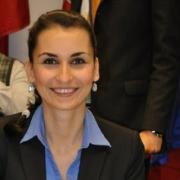
Abstract
Over the past several years, Yale University Facilties has closely examined campus water use, stormwater impact, and the potential of green infrastructure to enhance campus operations and resiliency. These efforts are in continuous development in collaboration with Yale faculty and students, as well as partners with public utilities and the City of New Haven. This presentation will review the current University Stormwater and Water Management Plans, forthcoming updates, and intial project successes and challenges. Two significant intitatives will also be presented: a feasibility sketch of a large-scale campus reclaimed water system and a pilot to provide real-time water use data for every building at Yale in conjunction with the Regional Water Authority -- both of which may provide research opportunities and additional resiliency of public water and stormwater systems. Discussion will include thoughts on how these efforts can be assessed for benefits to the unversity, city, and region as a whole.
Speaker Information
Julie leads a broad portfolio of initiatives in support of the University’s energy and sustainability goals. Paquette has extensive technical experience with high performance building and campus energy systems, and is personally and professionally committed to sustainability innovation, education, and advocacy. Paquette joined the University in 2012. Prior to Yale, she led Go-Green Services at Sightlines in developing energy performance metrics, strategy, tactics, and relationships across 60 member universities. Paquette also launched and led the Green Integration Group at Vanderweil Engineers in providing energy services and contributing to the design and construction of over forty LEED certified buildings representing nearly twenty-five million square feet of space, including over seven million square feet at the Platinum level. Paquette is a registered Professional Engineer with engineering degrees from Brown University and MIT.
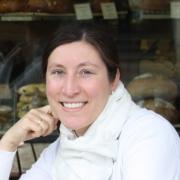
Speaker Information
Gaboury Benoit is the Grinstein Professor of Environmental Chemistry at Yale’s School of Forestry and Environmental Studies, where he has served as the Associate Dean for Research and Director of Doctoral Studies. He has a joint appointment in Yale’s Environmental Engineering program. He founded Yale’s Center for Coastal and Watershed Systems in 1992 and acted as its faculty director. He is also faculty director of Yale’s Hixon Center for Urban Ecology.
Dr. Benoit received his bachelor’s degree from Yale’s Department of Geology and Geophysics where he studied environmental chemistry. After working for three years in an independent environmental consulting firm, he earned a master’s in Water Resources Engineering from MIT (1985) and a PhD in environmental chemistry from the M.I.T.-Woods Hole joint program (1988).
Gabe is a nationally recognized expert on environmental chemistry and the impacts of land development on water. Recent research includes urban environmental issues and watershed based studies of nonpoint source pollution. Among his many publications, he co-authored the book New Strategies for America's Watersheds: Integrating Ecological, Economic, and Social Factors that was published by National Academy Press in 1998. Another important recent publication is the book Land and Natural Development (L.A.N.D.) Code, co-authored with Diana Balmori of Yale’s Architecture School, and which is a set of guidelines for sustainable land development.
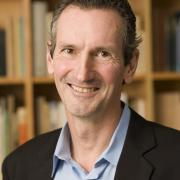
Speaker Information
Giovanni Zinn, P.E. is the City Engineer for the City of New Haven as of 2014. As City Engineer, he has worked on many projects focused on sustainable and livable infrastructure, including complete streets, encouraging alternative transportation options, adopting green infrastructure, designing resilient living shoreline installations, and reducing the City's carbon footprint through aggressive energy reduction. Prior to leading the Engineering Department, Giovanni also served as a project manager for the City of New Haven’s Engineering Department and Office of Sustainability and managed environmental programs for the City Plan Department. Giovanni graduated from Yale College in 2005, and lives in New Haven with his wife Megan and their three little boys (who keep them very busy!).
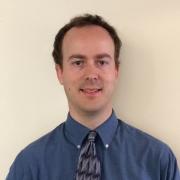
In the wake of Hurricane Sandy in 2102 and more recent projections of sea level rise, the State of Connecticut and its coastal communities have been compelled to reassess patterns of development, placement of infrastructure, storm and flood protection, storm water management, and indeed all the many factors associated with the broad concept of resilience. In particular, the disciplines of planning, architecture and landscape design have had the challenge – but also the opportunity – to reconsider established paradigms and practices. This panel will present perspectives from professionals in all of these fields, who are also currently collaborating on important initiatives and studies throughout the state, but focused on Connecticut’s largest city, Bridgeport. We will consider the role of research, policy, politics, funding, design, technology, and community participation in approaching these projects.
Speaker Information
David Waggonner is president of Waggonner & Ball, an internationally active architecture and environment practice located in New Orleans. He is a graduate of Yale School of Architecture, a Fellow in the American Institute of Architects, and a recipient of the AIA Louisiana Medal of Honor. Waggonner & Ball's portfolio, recognized by scores of AIA and other awards, ranges from historic preservation and modern institutional work to urban and ecological design and connects past through present to future. In the aftermath of Hurricane Katrina, David saw an opportunity for New Orleans to reinvent itself as a sustainable city that embraces its lifeblood: water. He championed a process that examines history, soils, biodiversity, infrastructure networks, urban space and habitation, along with the forces of water. This combination serves as a holistic foundation for design, initiated during the Dutch Dialogues, developed through the Greater New Orleans Urban Water Plan, and now being implemented in multiple projects including the city's winning National Disaster Resilience Competition (NDRC) entry. Related processes and efforts have produced Rebuild by Design and other NDRC awards for Bridgeport and the States of Louisiana, Connecticut, and Virginia.

Speaker Information
David Kooris is Director of Rebuild by Design and National Disaster Resilience for the State of Connecticut. These Federal grants, totaling $65 million, will enable resilience planning for Fairfield and New Haven Counties and the construction of several pilot projects for green infrastructure, raised mobility corridors, distributed energy generation, and 21st Century flood protection in Bridgeport. Prior to this position, Mr. Kooris was Director of the Office of Planning and Economic Development for Connecticut’s most populous city, Bridgeport. This role enabled him to chart a long-range strategy for the city’s revitalization grounded in its diverse neighborhoods, spur economic development in its downtown and commercial centers, and reposition thousands of acres of brownfields for sustainable redevelopment. Before assuming that appointment, Mr. Kooris held various positions at Regional Plan Association, the nation’s oldest regional planning organization, culminating in his role as Vice President. Mr. Kooris has worked on high-speed rail-oriented development, sustainability planning, and urban revitalization projects abroad in Canada, Turkey, Morocco, Spain, Mexico, Peru, Taiwan, and South Korea. Since the fall semester of 2012, Mr. Kooris has been a lecturer at Yale University’s Graduate School of Forestry and Environmental Studies in city and regional planning practice.
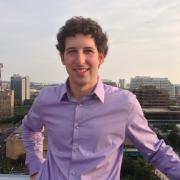
Speaker Information
Dr. Felson is an Associate Professor, an urban ecologist and a registered landscape architect at Yale University. He directs the joint degree program between the School of Architecture and the School of Forestry and Environmental Studies and is the founder of Urban Ecology and Design Lab (UEDLAB). His work focuses on ecological urban designs that incorporate aspects of green infrastructure (especially water management), coastal adaptation and constructed plant communities. He was part of Yale’s core team on a federal HUD Hurricane Sandy initiative, Rebuild by Design and is currently serving as an advisor to the State of Connecticut through an Executive Order from the Governor on the “State Agencies for Resilience” (SAFR). He served as the lead designer for the State of Connecticut’s HUD National Resilience Disaster Competition with a proposal that awarded the state 54 million. Pioneering coastal green infrastructure, Felson built bioretention gardens in Bridgeport, CT and developed the first Coastal Resilience Plan in Connecticut for the town of Guilford. Through the UEDLAB Felson also worked with the Nature Conservancy on the Regional Framework for Coastal Resilience in Southern Connecticut, a USDA funded project. Working with town representatives, the team developed near, mid and long term proposals.
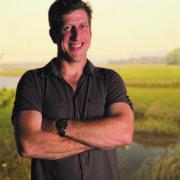
Speaker Information
Alan J. Plattus is Professor of Architecture and Urbanism at the Yale University School of Architecture, where he teaches courses on architectural history and theory, urban history and design, and directs the School’s China Studio. He founded and directs the Yale Urban Design Workshop, a community design center that has undertaken urban design and building projects throughout Connecticut, including the efforts currently underway, through the H.U.D. Rebuild by Design program, to help Bridgeport and the Connecticut coast adapt to the challenges of climate change and sea level rise. He has led international teams in the design of large-scale environmental and public space projects from Flushing Meadows Corona Park in New York City to a Peace Park on the border of Israel and Jordan.
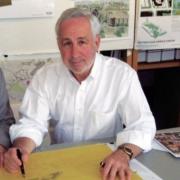
Speaker Information
Dr. William Solecki is on the faculty at Hunter College – City of New York in the Department of Geography and CUNY Institute for Sustainable Cities. Dr. Solecki’s research focuses on urban environmental change, resilience, and transitions. He has served as leader or co-leader of several climate impacts studies in the greater New York and New Jersey region, including the New York City on Panel on Climate Change (NPCC) and the New York State ClimAID report. He currently serves as the co-PI on the Climate Change Risk in the Urban Northeast (CCRUN) NOAA-funded RISA project which is designed to promote climate risk information for decision-makers and stakeholders in the urban Northeast US. Solecki is the participant on a recently NSF funded, Urban Resilience and Extreme Events (UrEX) Sustainability Research Network. He recently was a lead author of the IPCC, Working Group II, Urban Areas chapter (chapter 8) and a coordinating lead author of the US National Climate Assessment, Urbanization, Infrastructure, and Vulnerability chapter (chapter 11). He is a co-founder of the Urban Climate Change Research Network (UCCRN) and co-editor of the recent Climate Change and Cities Assessment (ARC3) Report.


